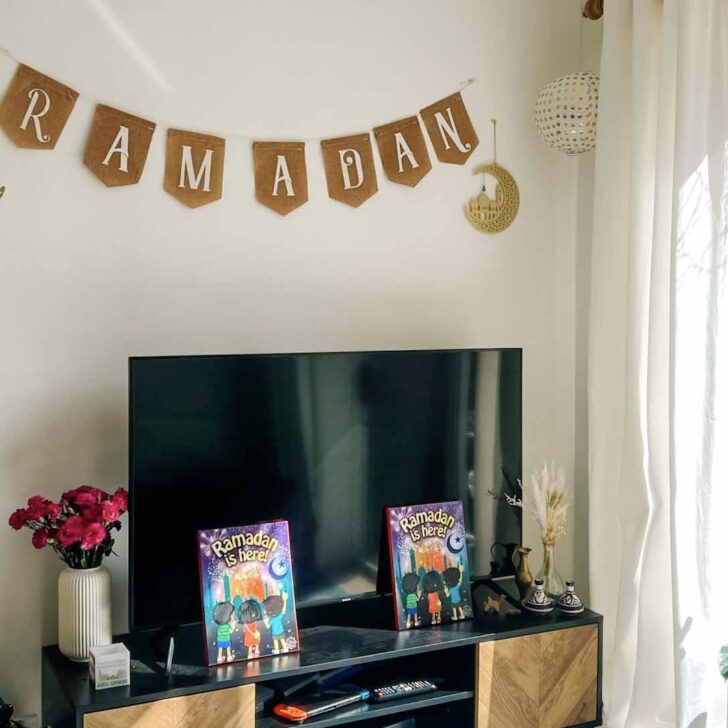With Ramadan approaching it’s time to think about how we want to spend this holy month and I’d like to share my Ramadan tips with you! As a revert Muslim, I am now on my 5th Ramadan Alhamdulillah.
I have previously shared my Ramadan Preparation Tips which you can read here and now I want to share tips for Ramadan I’ve picked up and benefitted from for the whole month inshallah.
Ramadan Tips
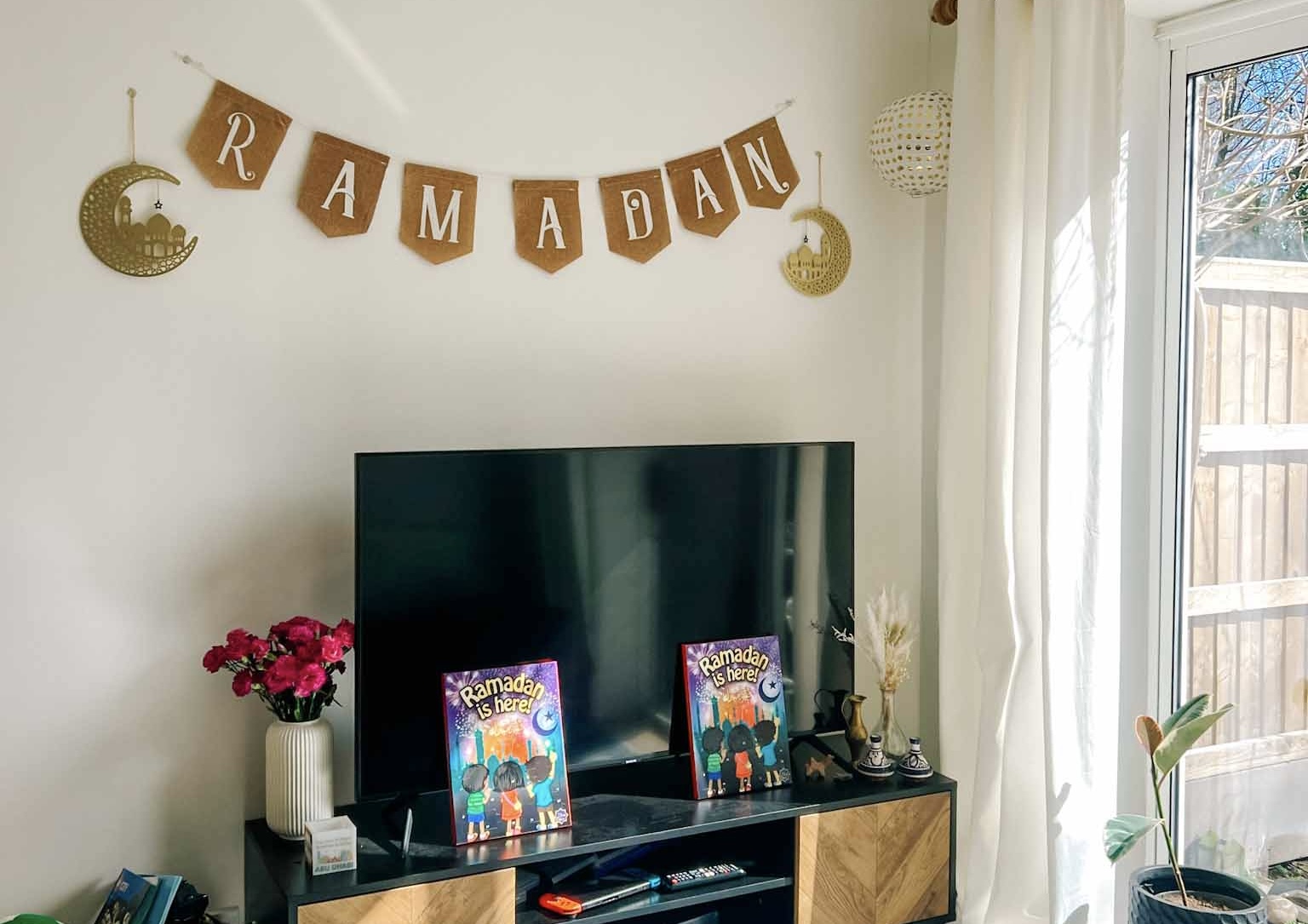
Whether you’re a new Muslim too and a bit worried about Ramadan, or you want to get more out of this holy month than you have previously, I’ll share with you my fasting tips for Ramadan, health tips for Ramadan, nutritional tips for Ramadan and how to set good intentions and goals.
So let’s go, Bismillah.
Ramadan Tips for New Muslims
If you are a new Muslim, as well as reading all of my top tips for Ramadan below, be sure to check out my Youtube channel. These 2 videos in particular will be helpful to you inshallah:
1. Set Ramadan Goals
As Ramadan approaches, I love looking back at the last year and setting goals for what I want to achieve and I think this really helps to create a focused Ramadan and ensures the month doesn’t pass you by without doing anything out of the norm, aside from fasting.
Usually, I commit to reading all of the Quran by reading 1 Juz a day for 30 days which completes it by Eid. I try to practise and learn a new surah, and learn some more Arabic.
Your Ramadan goals could be to have more people over at Iftar, attend the mosque more, slow down, or learn more about Islam.
I find Ramadan Journals a great way to document each day and set goals and intentions. Here are my 10 Beautiful Ramadan Planners To Help Fulfil Your Goals & Intentions!
One of my biggest Ramadan tips for goal setting is to re-new the goals and intentions as the month goes on. Splitting the month into 3 is a good idea, use the first 10 days to get into Ramadan and see what is working for you, use the second 10 days to refine what you want to focus on or drop goals that you haven’t been reaching.
Of course, we know that the last 10 days of Ramadan are the most special inshallah and this is a great way to add something new in, really focus and learn, especially as people tend to go to the mosque more on these days/nights and socialise less.

2. But Don’t Overcommit
However, one of my biggest tips for Ramadan is to not overcommit. Ramadan is not a tick-box exercise and shouldn’t be treated as such.
It will depend on your character and what motivates you. For me, I like to have 2-3 things a day that I stick to and achieve, like reading a juz a day and doing some low-impact exercise.
I find from past Ramadans that when I set myself a bigger ‘to-do list’ if I don’t end up doing it all, I feel disheartened and it can be hard during some fasting days to do everything if you have a day that feels long, you’re hungry and tried.
You need to find a good balance between having goals and intentions to help you make the most of the month and not have the month pass by just like a ‘normal’ month, however, you don’t want it to feel like a chore.
3. Be Mindful When Planning Travel
We can travel during Ramadan with no problem and there are exceptions to fasting during travelling days if you wish to use them, however, one of my Ramadan tips is to not plan too much travel at the start of Ramadan.
I always find the first half much harder and although by the second half, I can do days out and lots of activities, during the first half, I can’t think of anything worse.
If you plan to travel to a Muslim country, you probably won’t find it too hard as everyone will be fasting around you and many activities and places are closed during the day time, but if you plan to travel to a non-Muslim country and plan to treat the trip like a normal trip, it’s just that you’re fasting, be careful as this can be hard.
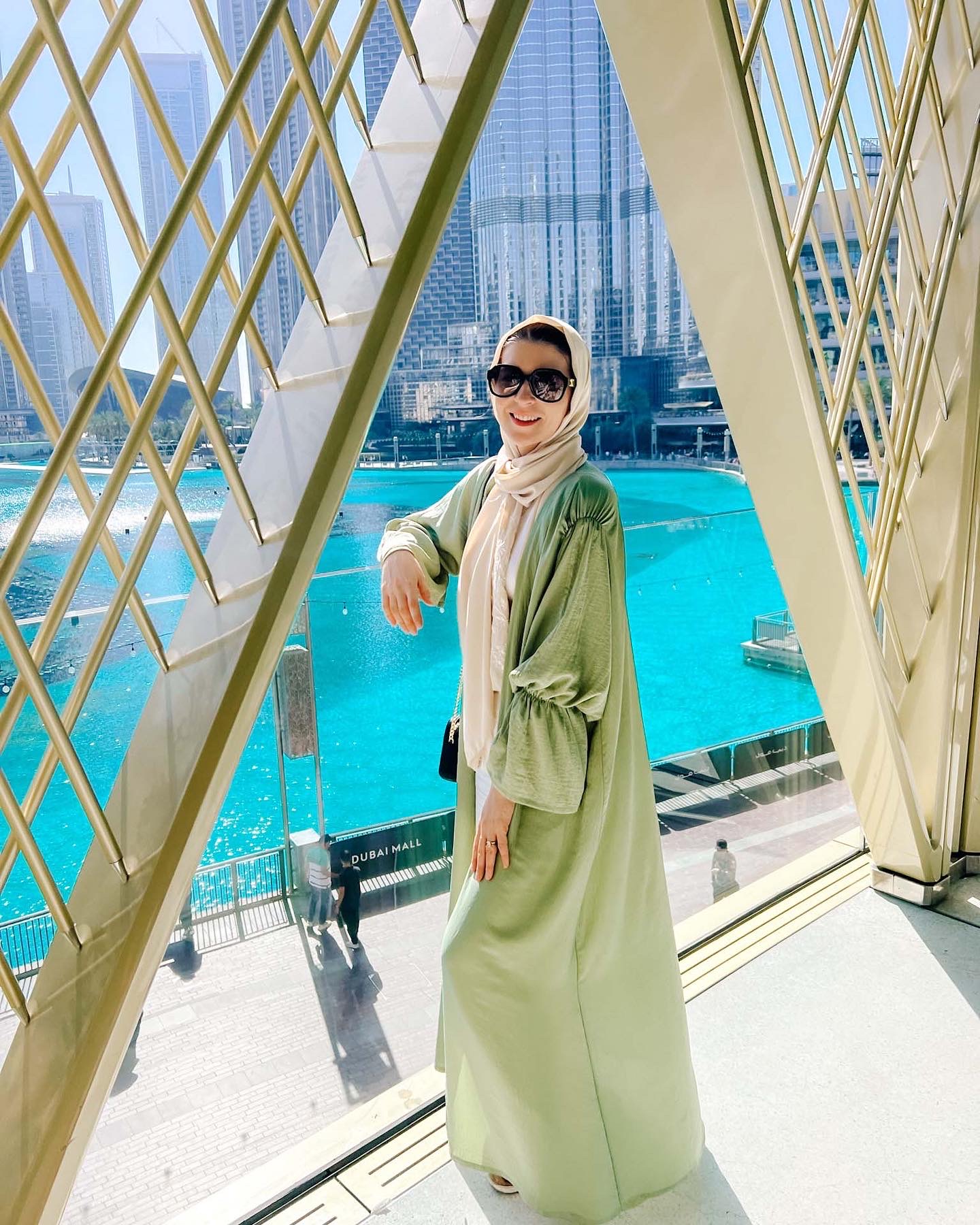
4. Reduce Work Schedule if Possible
This is one of the Ramadan tips for students as well as those working. I know many of my friends plan their annual leave around Ramadan so they have more time off, especially on Fridays and during the last 10 days.
If you’re studying, think of what work or revision you can do before Ramadan when your brain can function more. Also note that as Ramadan goes on, you’ll get used to fasting more and it will be easier to work and focus, the start can be much harder.
5. Reduce Caffeine before Ramadan
One of my big Ramadan preparation tips is to reduce caffeine (and sugar) before Ramadan.
Ramadan headaches from caffeine withdrawals are so common and you will get one if you’re used to having a coffee or more every day and then you suddenly stop.
These caffeine withdrawal headaches make the start of Ramadan much harder than it has to be, especially as you might get headaches from lack of food and sleep too.
One of the health tips for Ramadan I recommend is to reduce your caffeine intake around 2 weeks before so that you have some zero caffeine days leading up to Ramadan too!

6. Fast Before Ramadan Starts
You may have some fasting days to make up from last Ramadan (women don’t fast on their menses so have to make these days up, or you may have been sick and missed a fast) and whether you still need to make these up or not, it is good to get fasting before Ramadan starts.
I know many people like to fast during the winter, especially in the UK and Europe as the daylight timings are much shorter than our current Ramadan times, this helps our body and mind get used to fasting again before Ramadan approaches.
It’s also sunnah to fast on Mondays and Thursdays so we should be fasting regularly throughout the year anyway! Start fasting once or twice a week in the few weeks leading up to Ramadan and you’ll have a better start to Ramadan, I promise!
If you are a new Muslim, you might find fasting outside of Ramadan hard and I also promise that Allah makes fasting during Ramadan so much easier and different so don’t be put off if you find the pre-Ramadan fasts hard.
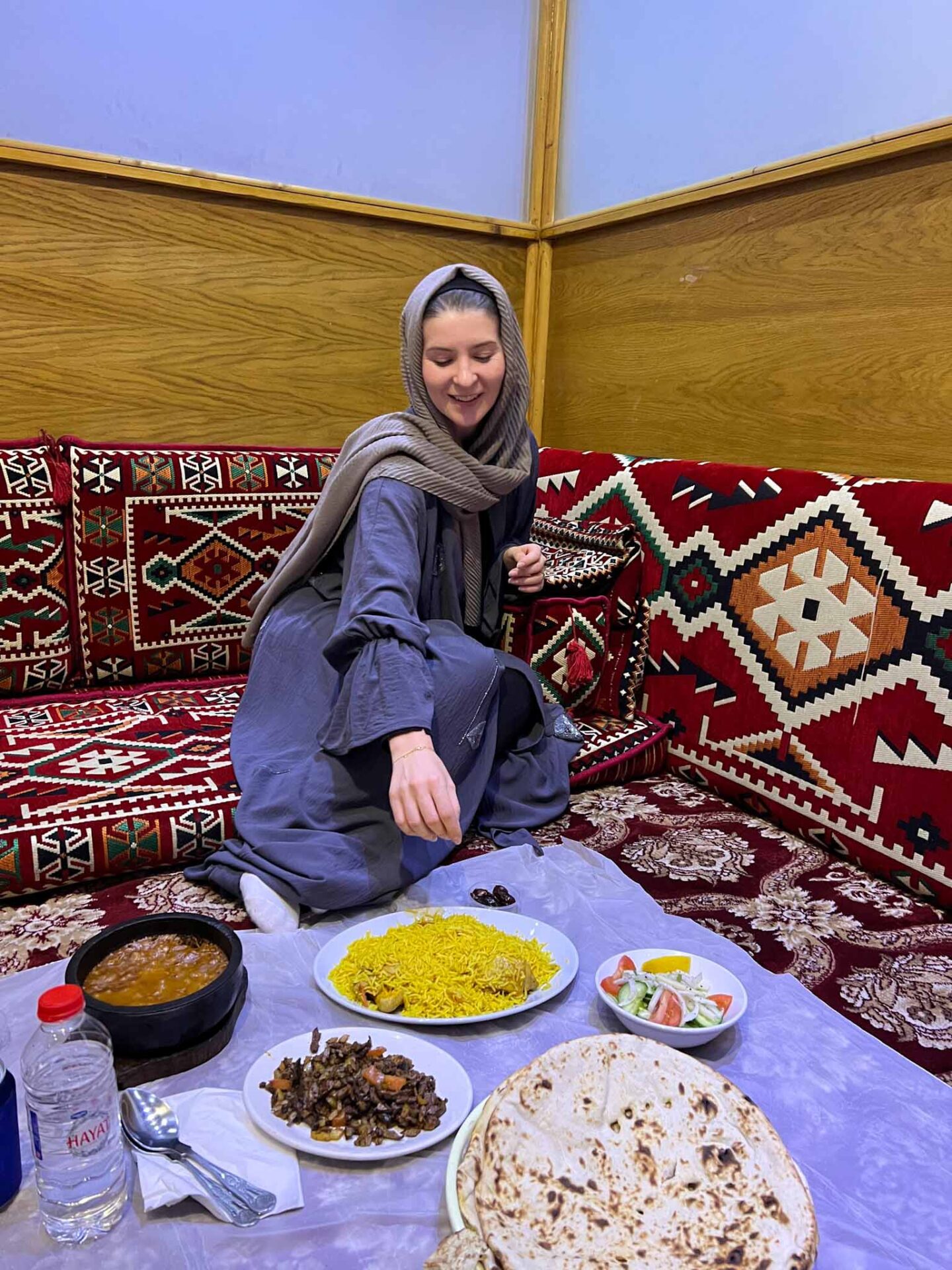
7. Prepare a Weekly Ramadan Meal Plan
One of my food tips for Ramadan is to prepare a meal plan each week, especially for the first week of Ramadan!
Thinking and planning what to eat for dinner is hard enough anyway but doing it when hungry is extra hard!
Before Ramadan starts, write a list of meals you could make during Ramadan and create a 1 or 2 week plan from these.
Do your food shop before Ramadan too so it will cover you for the first week at least and you have everything you need for Suhoor’s and Iftars! Food shopping when fasting, especially in the first half of Ramadan is also super hard!
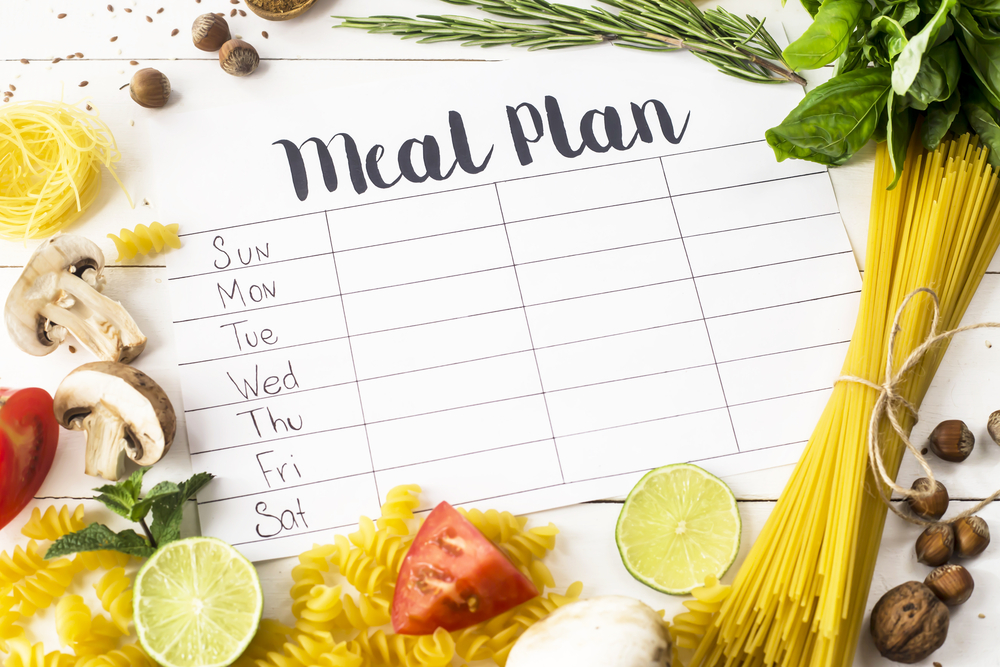
8. Prepare Hydrating Foods and Drinks for Iftar
Here are some Ramadan tips that are healthy Ramadan tips and fasting Ramadan tips because they go together.
When planning what to eat for Iftar after you’ve broken your fast, be mindful of salty foods as they will make you thirstier the next day and it will negatively impact the next day’s fast.
Also, be mindful of including hydrating foods and drinks into your Iftar and before you sleep which will positively impact the next day’s fast. I love to drink coconut water in the evenings during Ramadan.
I know it’s common for many people to eat fried foods for Iftar, especially if a big group or family Iftar is happening but I personally avoid this and if you are looking for healthy Ramadan tips, many people suggest against this too.
Not only are you putting a lot of oil and fat in your body after it’s been clearing everything out all day, but the fried foods and probably sugary drinks you’ll pair with it, will dehydrate you for the next day.
Again, as with many of these Ramadan tips, I find I’m more sensitive to this at the start of Ramadan, for example, I avoid fast food and take-out food at the start, but I know towards the end of Ramadan these less-hydrating foods won’t affect my fast as much the next day because my body is used to fasting.
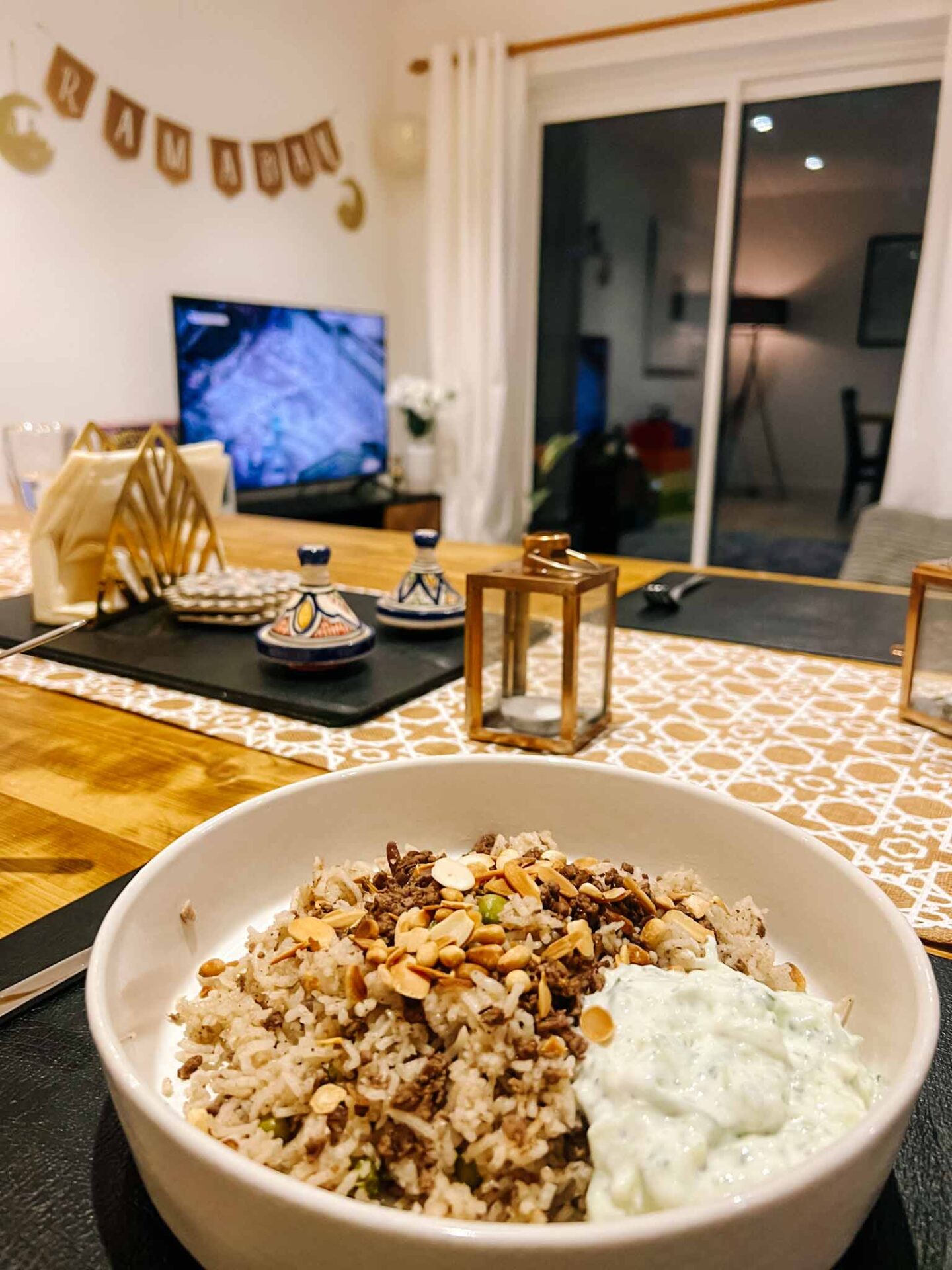
9. Mix up Suhoor
I used to be able to eat the same breakfast every day without fail but even throughout that stage of life, I could not eat the same thing for Suhoor all month!
I think forcing food inside me when it’s so early in the morning and I’m not that hungry puts me off my Suhoor and I’ve heard this happened to other people too. Therefore, I now mix up my Suhoor and try something new each day or every 2-3 days so it doesn’t get boring and as Ramadan progresses I eat less and less for Suhoor as my stomach has shrunk.
I love to have Paratha and Eggs, Peanut Butter, Avocado or Eggs on Sourdough, Chia Pudding, Greek Yogurt.
10. Suhoor Sets You Up For The Day
On this note, be mindful of what you eat at Suhoor becauae this sets you up for the day and can give you a good or hard day fasting.
Having a Suhoor full of protein, good fats and no/low sugar is one of my healthy tips for Ramadan because not only will you feel full for longer in the day, but you’ll also stop yourself from having blood sugar crashes.
There are many posts on healthy Suhoor ideas like this one, but be sure to know your body. The post recommends oats will may work for many people and are healthy but I feel like oats spike my blood sugar and make me crash a few hours later.
Again, this is a good reason to mix up your Suhoors as you may notice you feel hungrier earlier or more tired one day than another which could relate to what you eat before starting your fast.
11. Stagger Taraweeh Prayers
If you live near a mosque, going to Taraweeh Prayers should be part of your Ramadan routine but I know it can be hard to get into and to keep going.
My first and second Ramadan were during the 2020 & 2021 lockdowns so there were no Taraweeh Prayers. I then found it hard in 2022 & 2023 to bring this into my routine, especially as Taraweeh can end quite late and then you sleep late and have to get up early.
Although we should strive to go to Taraweeh every day, it’s not always possible for everyone so what I find staggering it helps with motivation.
Agree with yourself/ your partner/parents etc, that you’ll go every other day or every 3 days for example. Or perhaps you need to sleep early for work the next day, instead go every Friday and Saturday when you don’t need to be awake early on weekends.
This helps keep accountability of Taraweeh prayers and makes it more manageable as you might go for the first week and then burn out and not go again which isn’t what we want to happen.
Attending Taraweeh Prayers during the last 10 nights or Ramadan is also super important so try to work up to this.
12. Going Back to Sleep Gets Easier
Talking of going back to sleep after Suhoor, I know it is recommended to use this special time wisely, especially reading the Quran and in the UK, as Fajr gets later in the morning I know many of us will do that.
Right now in the UK and Europe Fajr is very early and many of us will go back to sleep so we have more energy for the day.
I want to tell any new Muslims reading this that going back to sleep after Suhoor gets easier! For me, I struggle going back to sleep after making food, eating and praying but as the month goes on, my body gets used to it more and more and I sleep again much quicker.
So that’s one of my Ramadan tips for new Muslims who are new to Ramadan!
13. Use Menses Days Productively
As we women do not pray or fast during our time of the month, it can be nice to use these days to do stuff that is harder when fasting.
For example, I like having people over for Iftar when I’m not fasting as it makes cooking and me trying the food much easier.
Last year, I helped out at one of the Open Iftars, I would have said yes to helping out anyway however when I accepted, I knew I wouldn’t be fasting that day and it did make travelling to the venue, being around to set up and serve food much easier.
You might want to do some volunteering, charity work or other physically or mentally taxing work that is harder when fasting.
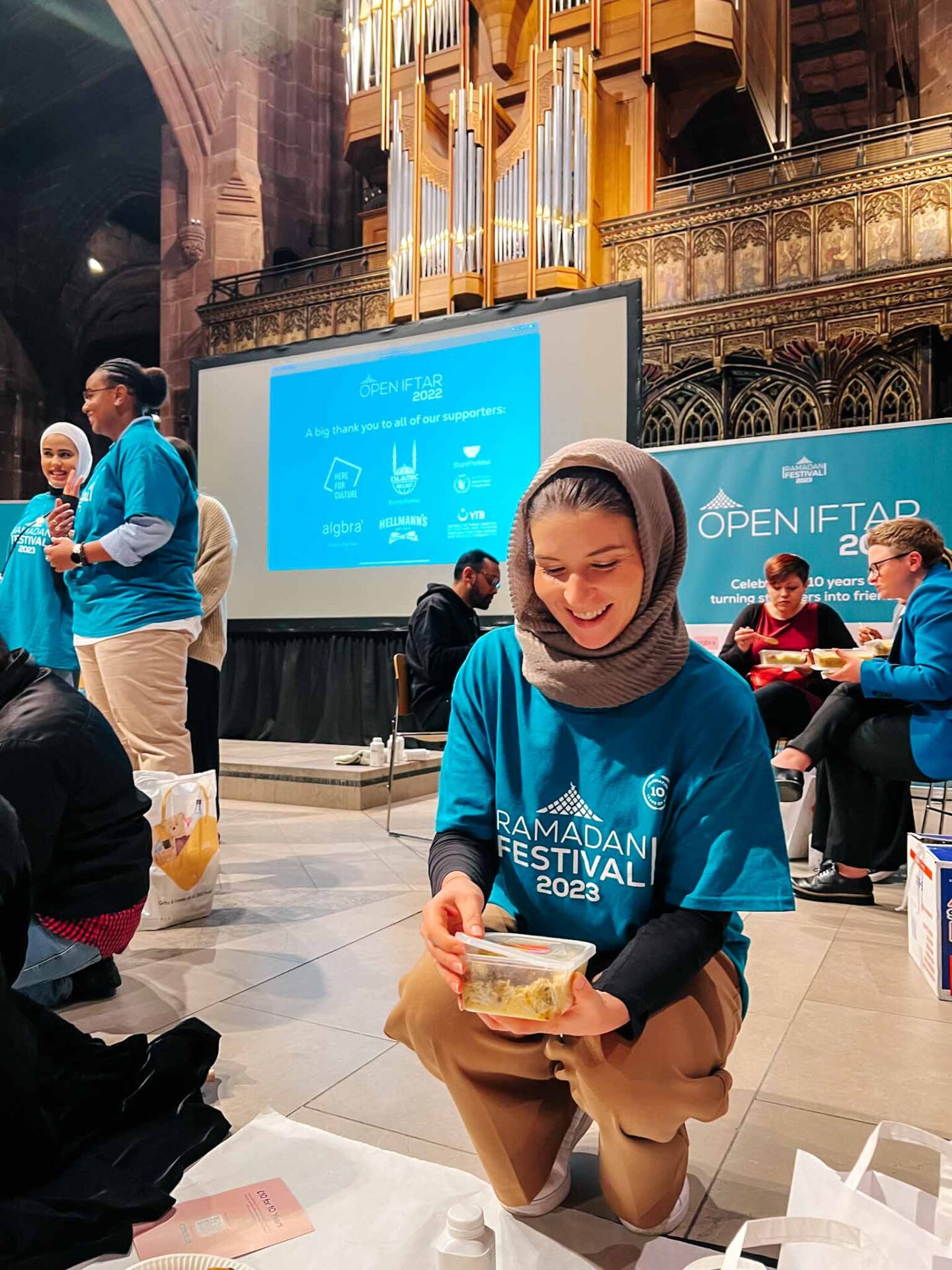
14. Reduce TV, Music etc
I know a lot of Muslims reduce their TV and Music time during Ramadan and this is something I love to do too.
Although I am mindful of what I watch and listen to all year round, I do love trashy reality shows but Ramadan for me is not the time to watch these and I don’t want to listen to music with bad language.
I’d rather watch an inspirational and educational talk on YouTube and listen to the Quran or an Islamic podcast.
For the last few years, they have produced a 30 day series during Ramadan, these are their past series: Jannah, Judgement Day, Prophet Muhammad ﷺ ,Angels and Faith Revival. All of these have been amazing, so educational and I look forward to them each day of Ramadan so be sure to go back and watch them and look out for this year’s series inshallah and replace this with your usual TV shows!
16. Get Activities for the Children
Make Ramadan fun for the children too! Right now, many of us have to compete with Christmas so it’s good to make Ramadan and Eid fun as well as to make it easy/tempting for them to learn, try to fast and pray more.
With my stepsons, I’ve previously got them a large handmade calendar and put sweets and small toys in. Last year, we set up a rewards chart with a points system so they earned points for how many prayers and fasts they did, helpful acts and learning new Surahs.
There are some good Ramadan Journals for kids that you can buy too, I know my stepsons weren’t bothered by the ones I got one year but I think girls will like them more!
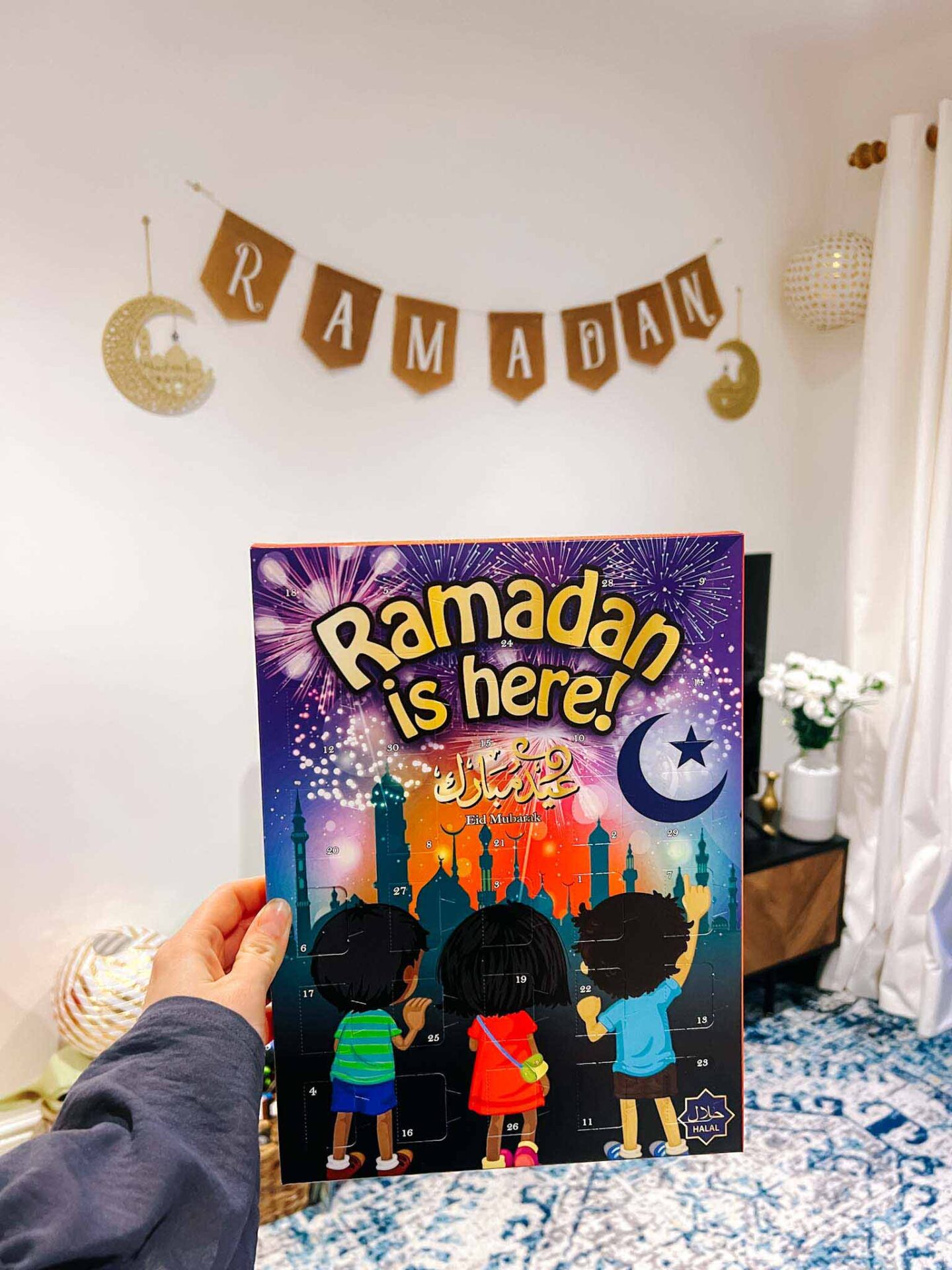
17. Get a Good English Translation of the Quran
A big part of Ramadan is reading the Quran and if you don’t read Arabic, it’s so important to get an English Translation so you can understand the Quran properly.
I recommend The Majestic Quran and The Clear Quran, I’ve made videos about them both on YouTube:
18. Join a Community
Revert Muslims especially can really struggle during Ramadan because of a lack of family and friends around them who are also celebrating Ramadan and even born Muslims who have moved to new countries and don’t know as many people.
I really encourage people to join a community during Ramadan, there are online groups that can help, especially Facebook pages to see who else lives in your area who is thinking the same.
Open Iftar in the UK is another way to get involved with a great group of people putting on public Iftar’s around the country.
Look into what your mosque is doing too as usually mosques put on more events and talks than normal. And, if you are new to your mosque, here’s a video I made about getting over mosque worry & anxiety.
19. Work out your Zakat
Working out your Zakat is easy as there are many Zakat Calculators online to help you work it out.
I love working out my Zakat at the start of Ramadan and then I donate the Zakat I have to pay to charities during the month of Ramadan.
20. Work Out Still
Fasting means we don’t have as much energy and can’t drink water whilst working out however it’s a great idea to work out and stay active during Ramadan, don’t stop all exercise. This is one of my health tips for Ramadan!
Going for more walks is a good idea, doing some gentle yoga and low-intensity HIIT. I know people who will also go to the gym just before Maghrib so they can do a workout and then drink and eat straight after they finish.
21. Buy Decorations
I love to decorate the house for Ramadan. Again, especially if you have children and feel like you have to ‘compete’ with Christmas, decorations and lights are a lovely way to show them how special Ramadan is and to look forward to it.
I love Eid Party & Little Muslim Books for decorations and I have ones I reuse year after year so they’re sustainable. There are also many small businesses selling Ramadan decorations on Etsy & Amazon.
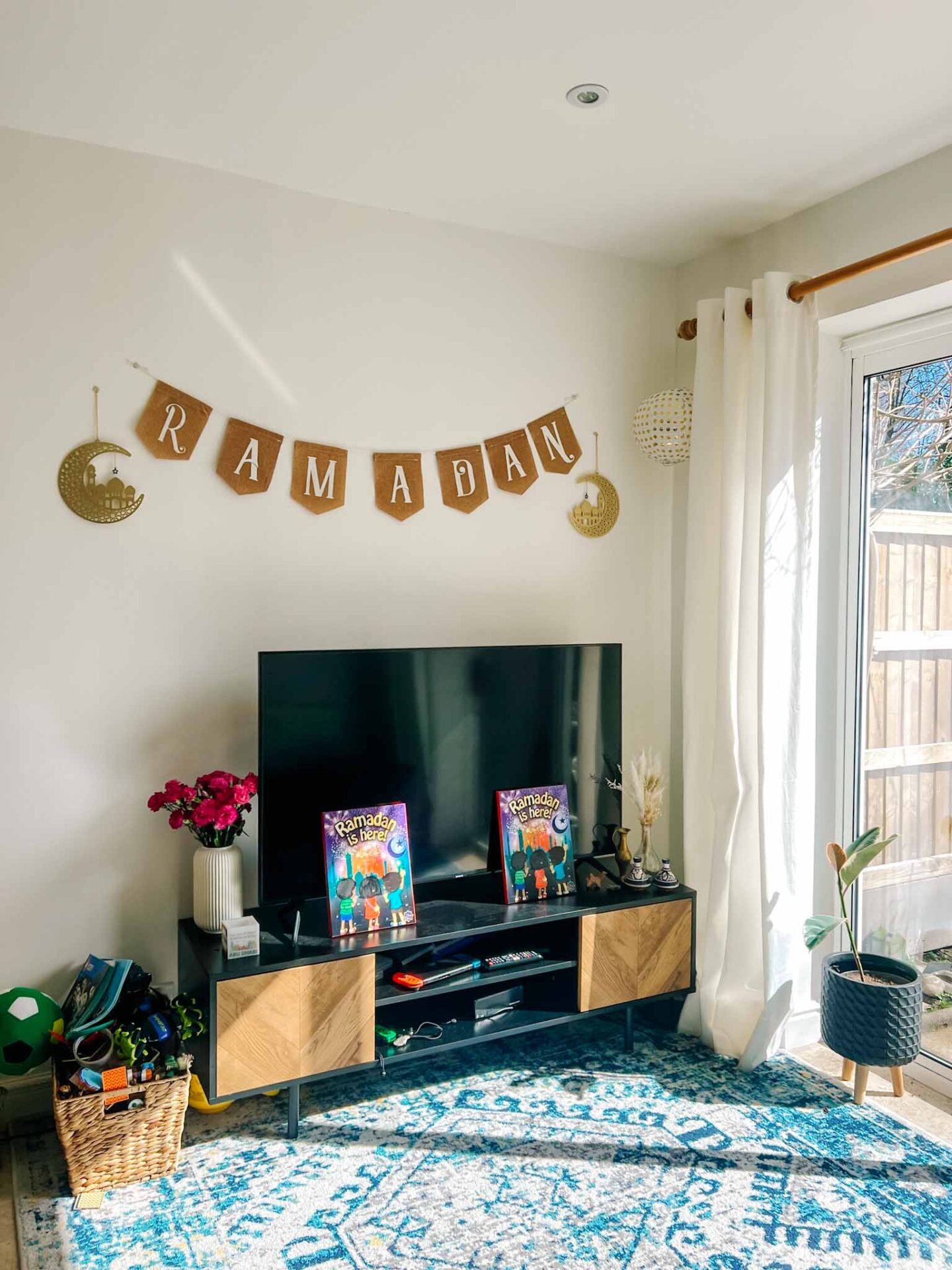
22. List Intentions for Next Year
After Ramadan has finished or during the last few days, don’t forget to think about what you want to work on during the next year and where you’d like to be for the next Ramadan inshallah.
Ramadan boosts our spiritual self and this is a great time to set some more goals and focus on how we can be a better Muslim in future and what we want to achieve.
I hope these tips for Ramadan help you have a healthy and happy Ramadan inshallah
- For more of my Islam posts see:
- Preparing for Ramadan in 10 Ways! Preparing Your Mind, Body & Heart!
- 10 Beautiful Ramadan Planners To Help Fulfil Your Goals & Intentions!
- Retreats For Muslim Women Around the World! Come and Join Us!
- 7 Travel Hacks Muslim Women Must Know!
- Becoming Muslim and Connecting to Faith through Travel
